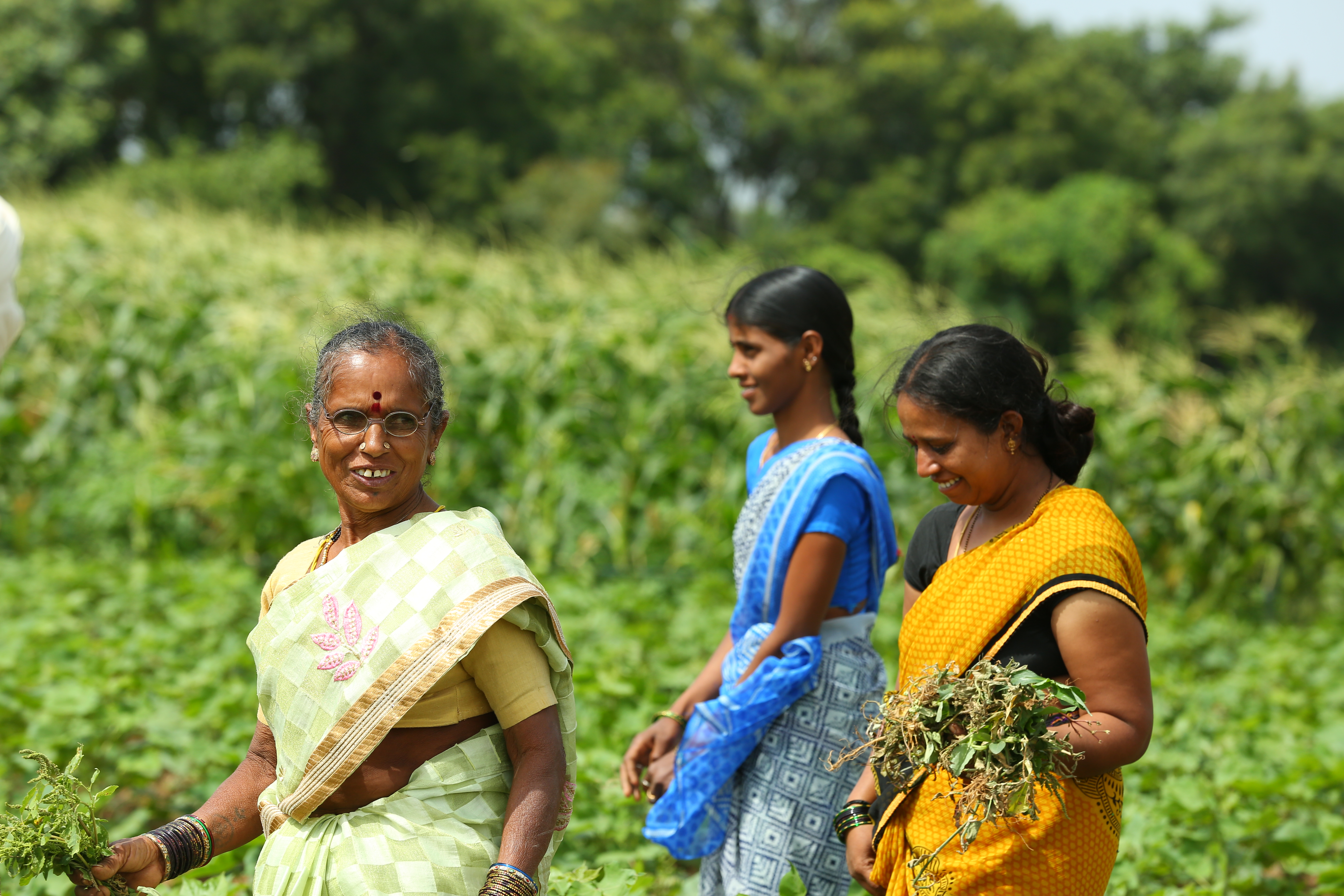From Soil to Shelves
From Soil to Shelves
How switching to organic methods is helping women farmers in India

Photo: UNDP India
At 35, Pushpa, from Siddipet district in the southern Indian state of Telangana, wanted to make the most of her life. Her circumstances – second wife to Mallesh, stepmother to 28- and 16-year-olds, mother to a six-year-old, informal and unpaid caregiver, and the cultivator of a 4.5 acre plot – hadn’t dimmed her spirits.
In 2017, the Disha project, as part of its mission to support one million underprivileged Indian women learn marketable skills and connect with livelihood opportunities, reached Pushpa’s district. A partnership between UNDP, India Development Foundation, and supported by the IKEA Foundation, Disha collaborated with Agribusiness Systems International (ASI) and the district administration to promote organic methods of cultivation as a means to economically empower women farmers.
Pushpa was among the first of 2,500 women to come on board. Field visits, live demonstrations and support sessions drew Pushpa and her friends to the trainings. However, ultimately, it was the promise of optimal resource use, improved yields, increased market access and better incomes that convinced them to make the shift to organic methods.
Now, from start to finish, be it preparing different kinds of organic manure, using trellises and stacking for better chilli, pepper and tomato crop yields, or switching to lightweight crates to reduce damage-related losses during transportation, the women farmers of Siddipet are beginning to feel the difference in their engagement with the agro-value chain.
Of note is how organic farming has afforded the women farmers fewer inputs, higher yields and better incomes. The Disha project assisted these farmers to organize into collectives and provided direct access to buyers and markets through collection centers set up by ASI, also handled by local women trained to ensure quantity and quality of the produce.
With the demand for organically produced food on the rise, especially among the discerning urban consumer, this intervention has enabled Pushpa to supply tomatoes to clients such as Big Basket, Metro and Spencer and score a premium of 18 percent over market (mandi) prices. In the last season, Pushpa harvested 17 metric tonnes of organically grown tomatoes, earning INR 230,000 (approximately $3500).
A vitalized Pushpa plans to support her stepdaughter to enrol for further education after school. What’s more, Pushpa’s farm was selected as a model to showcase Good Agricultural Practices (GAP) to the other farmers, as well as won her subsidies from the district’s horticultural department, making Pushpa a role model for women farmers everywhere.

 Locations
Locations